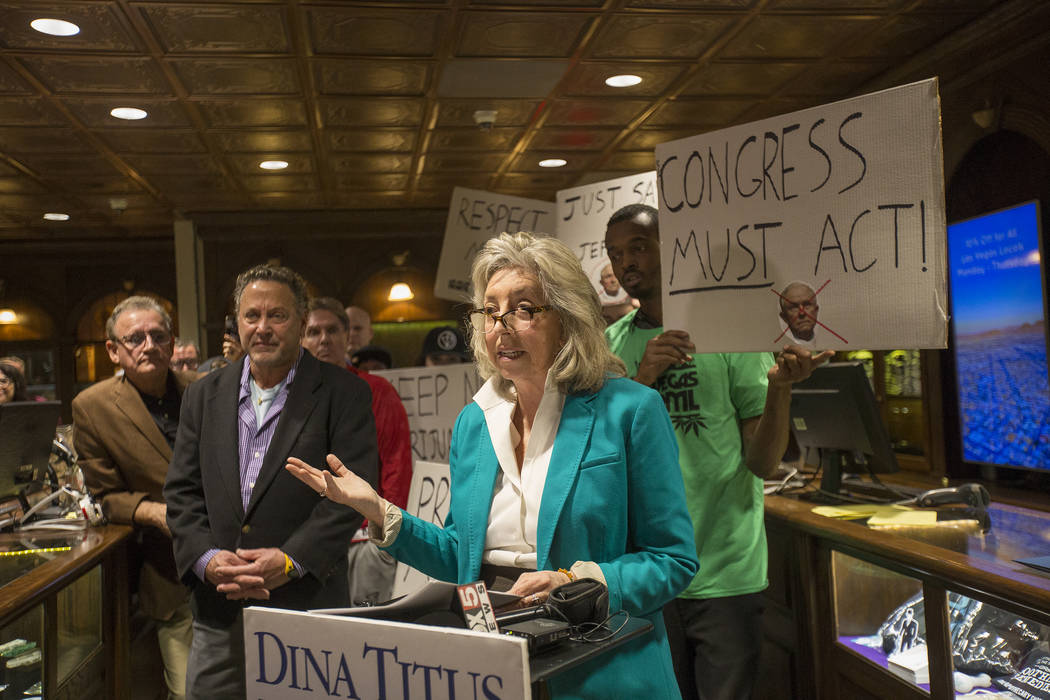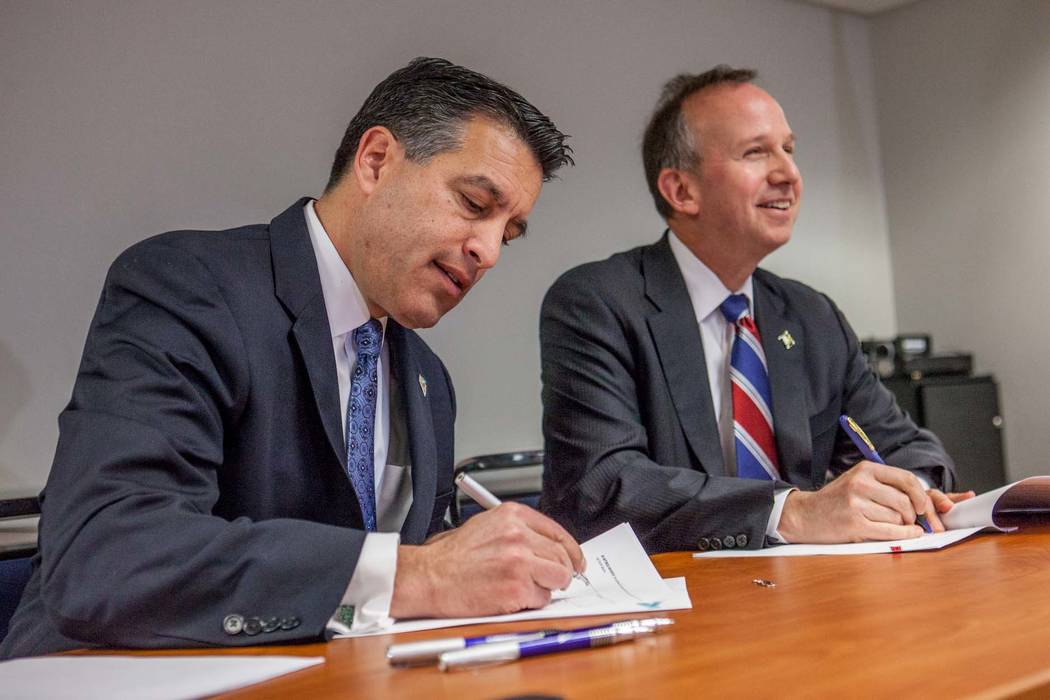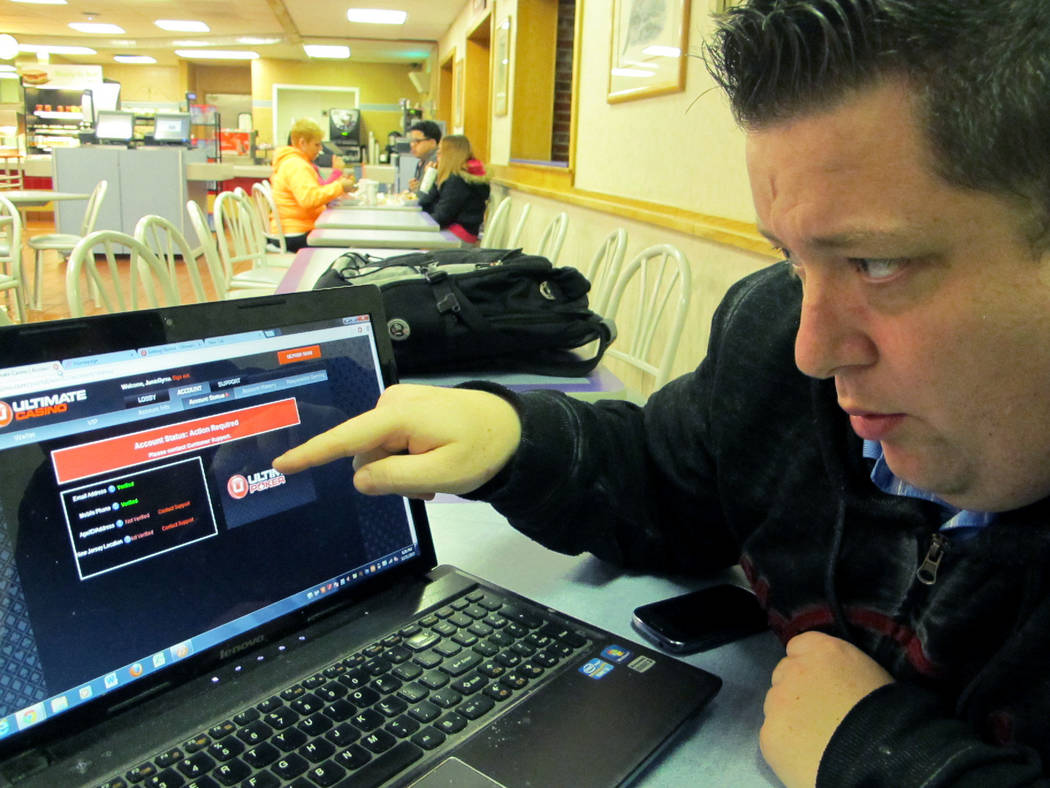Titus asks for opinion in keeping internet gambling legal




Anticipating a Supreme Court ruling soon on the legality of the Professional and Amateur Sports Protection Act, Rep. Dina Titus has sent a letter to the U.S. attorney general’s office asking for an opinion to keep internet gambling legal.
The letter from Titus, D-Nev., is in response to a letter sent Nov. 21 to Deputy Attorney General Rod Rosenstein from Sens. Lindsey Graham, R-S.C., and Dianne Feinstein, D-Calif., seeking an interpretation on the federal Wire Act and the Unlawful Internet Gambling Enforcement Act.
In 2011, President Barack Obama’s Justice Department ruled that online gambling within states that does not involve sporting events would not violate the Wire Act, a law concerning illegal gambling.
President Donald Trump, a former casino owner, told The Associated Press during the 2016 presidential campaign he had not taken a position on internet gambling, saying he has friends on both sides of the issue.
While there has been no indication that the Justice Department is considering a change in the interpretation of laws governing internet gaming, mostly as they apply to intranet agreements between states for poker, Titus’ letter comes at a time when the Supreme Court is poised to rule on PASPA, a law prohibits sports betting in all but four states, including Nevada.
“In Las Vegas, we have seen that a regulated market is always better than an illegal one,” Titus wrote. “Internet gambling will not go away with a reversal of Wire Act guidance; it will merely push more consumers into black markets.”
Use of the internet is expected to be a key component of sports betting if states are allowed to legalize it.
A Justice Department spokesman declined to comment to The Associated Press on Titus’s letter, and would not say whether the department is considering changes to its stance regarding internet gambling.
Titus, whose congressional district includes the Strip, said extensive consumer protections are enforced by state regulators and law enforcement personnel and that the letter from Graham and Feinstein “uses fear tactics and hyperbolic language to emphasize their distaste for online gaming.”
The Graham and Feinstein letter was sent just after Pennsylvania enacted legislation authorizing internet gambling.
“Internet gambling takes gambling too far,” their letter said. “It preys on children and society’s most vulnerable. The FBI has concluded that ‘online casinos are vulnerable to a wide array of criminal schemes’ including money laundering and ventures by transnational organized crime groups.”
The Associated Press contributed to this report. Contact Richard N. Velotta at rvelotta@reviewjournal.com or 702-477-3893. Follow @RickVelotta on Twitter.













